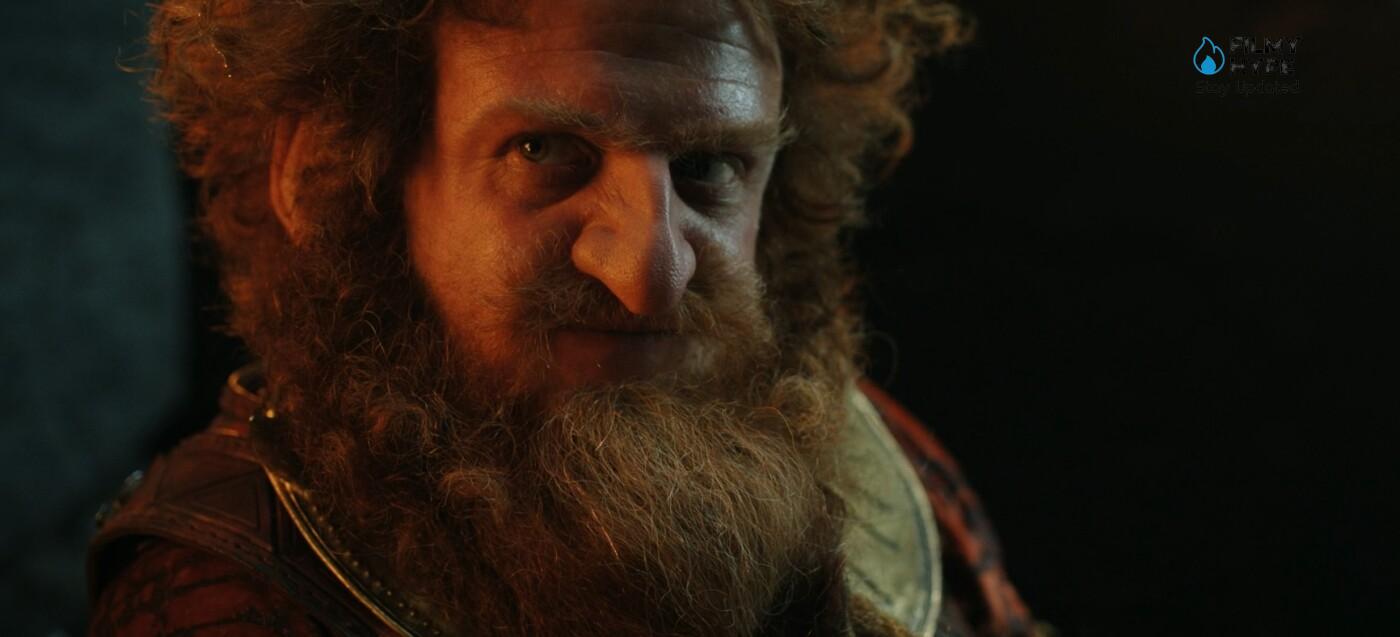The Rings Of Power: Durin’s Story Explains The Hatred Between Elves And Dwarves
In The Lord of the Rings (The Rings Of Power), the feud between elves and dwarves is the basis of the numerous skirmishes that Gimli and Legolas usually do with each other. There being eternally in competition, their finding themselves badly amalgamated within the Company has its roots in an atavistic problem, which dates back thousands of years earlier, precisely to the Second Era. The period that is told to us by The Rings of Power brings us to know what happened between the two races of Arda, thanks to the story of Durin III, king of Moria and father of Durin IV (recovered here the review of The Rings of Power 1X07). A hatred that ceased only when the dwarves agreed to support the construction of the Eregion forge, where Celebrimbor would forge the Rings of Power, then donate to the dwarves. Let’s understand, however, where this problem comes from, explained in the seventh episode of the Amazon Prime Video series.
The Rings Of Power: The Creation Of The Dwarves
Durin III tells the story of the creation of the dwarves to his son, who does not want to come to terms with his father, but would rather do so with Elrond, giving his elf friend mithril, the purest material found in the mines of Moria and which many years later will be the condemnation of the race of dwarves. The whole story starts with Aulë, an Ainu, one of the most powerful beings created by Ilùvatar, immortal and able to shape the entire design of Arda. Among them was also Melkor, who became the first Dark Lord by the name of Morgoth. Another story, though. Aulë manufactured all the substances of which Arda is composed and is eager to be able to pass on his knowledge to someone and his art decided to give life to the dwarves before Ilùvatar could create his sons, that is, Men and Elves.

This move did not find the consent of Ilùvatar, however, who wanted the Elves to be the first to arrive in Arda, receiving beauty, wisdom and immortality, stripping them of the ability to understand wickedness. For this reason, he forced Aulë to keep his creation, yes, but to keep it dormant until the elves woke up first. Ainu’s had been an unauthorized move that could take the form of a challenge from Eru. For this reason, the Dwarves were never considered direct children of Ilùvatar, who even preferred Humans to them, despite their being mortal and unable to keep their souls alive after death.
The Battle of the Silmaril
in a broad sense, we could begin to read the first conflict precisely in the genesis of the races, where the dwarves were forced not to be considered children of the God of Arda only because they were generated by a whim of one of the Ainu, punished by Eru. Once adopted by Ilùvatar, they were considered lesser sons, which prompted the dwarves to regard the elves as arrogant and too able to bask in their nature as chosen and blessed. The feud could not be based only on this, because it was the events that amplified the hatred between the two races, starting right from the First Era. Long before Khazad-Dum was to undergo the onslaught of Durin’s Scourge, the Balrog who would later kill Gandalf in the Third Age.
Long before Rings of Power could begin to tell the story of Middle-Earth, the Dwarves made the Nauglamir necklace for Finrod, Galadriel’s brother. Death, a key element in the story of the Amazon Prime Video series, pushed the necklace into the hands of Thingol, king of Doriath, who demanded a modification to Nauglamir: the addition of a Silmaril. The dwarf artisans of Nogrod, a city that will later be devastated by the War of Wrath and that will push its inhabitants to move to Khazad-dum, instead of doing the job decided to kill Thingol to regain possession of the necklace. On the other hand, the same jewel had been lost by Finrod and recovered by Hurin Thalion who drew it from the treasure of Glaurung, the first dragon of Middle-Earth.
The event gave rise to the Battle of the Thousand Caves, fought between the Dwarves and the Sindar, the Gray Elves of which Legolas will be part, and also Celeborn, husband of Galadriel, who was among the commanders of the Doriath army. The battle was won by the dwarves but returning to their kingdom they were attacked by a group of Green Elves and humans, including Beren Erchamion, the only man Ilùvatar allowed to return from the dead to start the lineage of Elrond and Numenor. Beren was able to recapture Silmaril from the necklace, to then give it to his wife Luthien and start numerous fratricidal fights, until the necklace came into the hands of Earendil, the Half-elf who gave birth to Elrond.
The war between the two races intensified even more the hatred between dwarves and elves, who only thanks to the intervention of Elrond and his friendship with Durin were able to find a moment of respite, which arose in the Second Era, when from Moria they left for the Eregion to support the creation of the Celebrimbor forge. Also, Legolas and Gimli will succeed in smoothing out the prophecy of Eru Ilùvatar, who told Aulë that their creations would fight for their entire existence, as punishment for giving birth to a race that was not originally identified as the daughter of the god himself.





